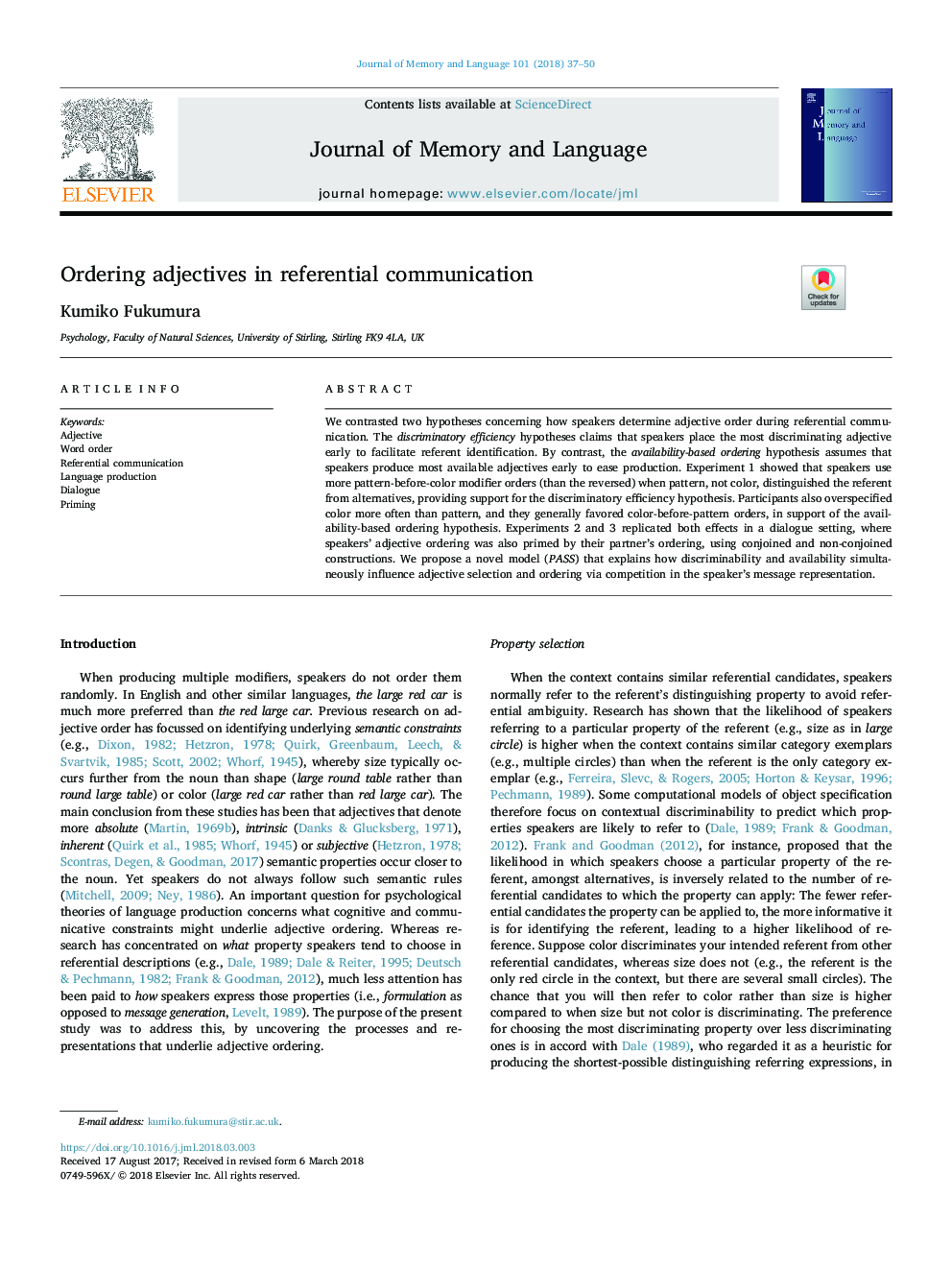| Article ID | Journal | Published Year | Pages | File Type |
|---|---|---|---|---|
| 7296801 | Journal of Memory and Language | 2018 | 14 Pages |
Abstract
We contrasted two hypotheses concerning how speakers determine adjective order during referential communication. The discriminatory efficiency hypotheses claims that speakers place the most discriminating adjective early to facilitate referent identification. By contrast, the availability-based ordering hypothesis assumes that speakers produce most available adjectives early to ease production. Experiment 1 showed that speakers use more pattern-before-color modifier orders (than the reversed) when pattern, not color, distinguished the referent from alternatives, providing support for the discriminatory efficiency hypothesis. Participants also overspecified color more often than pattern, and they generally favored color-before-pattern orders, in support of the availability-based ordering hypothesis. Experiments 2 and 3 replicated both effects in a dialogue setting, where speakers' adjective ordering was also primed by their partner's ordering, using conjoined and non-conjoined constructions. We propose a novel model (PASS) that explains how discriminability and availability simultaneously influence adjective selection and ordering via competition in the speaker's message representation.
Related Topics
Life Sciences
Neuroscience
Cognitive Neuroscience
Authors
Kumiko Fukumura,
